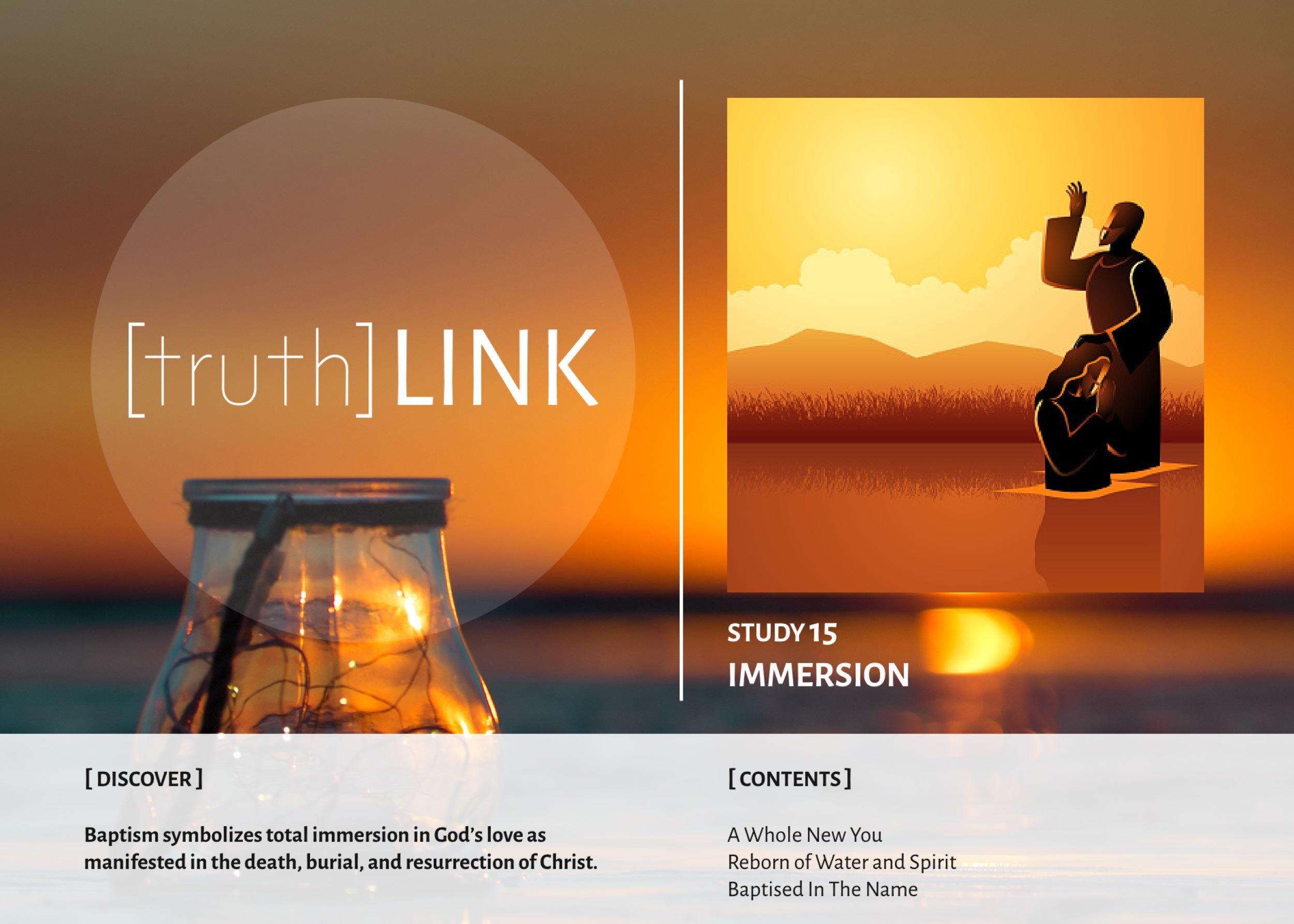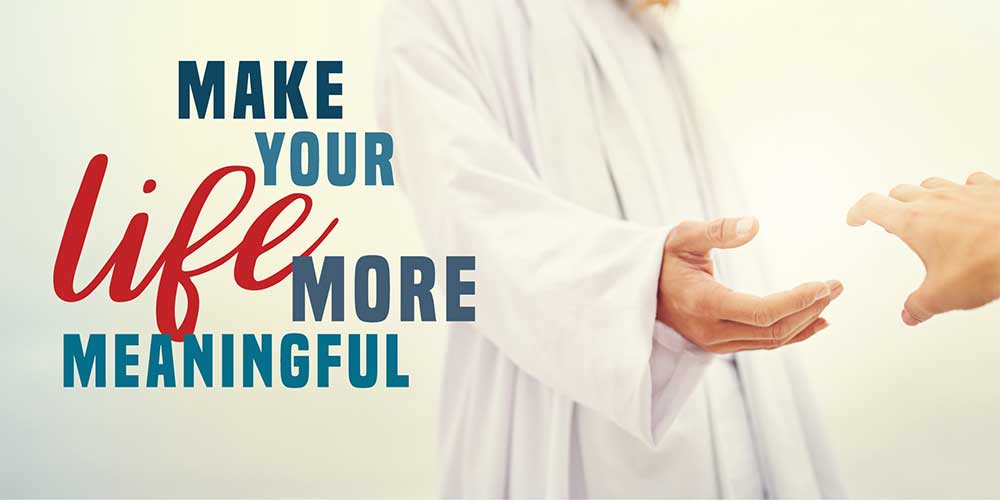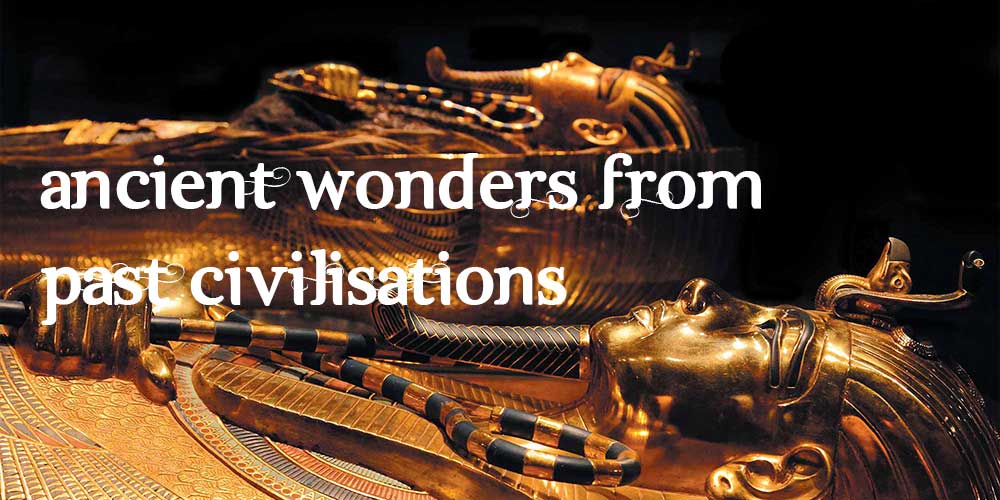
A Whole New You
What if you could be an amplified version of yourself . . . wait for it . . . with all the good and astounding things about you expanded and all the bad parts erased. Well, guess what? That’s precisely what God has in mind for you, and He fully intends to get you there, if you want to go. But how?
“Yes, I have loved _______ with an everlasting love; therefore with lovingkindness I have ________ _______” (Jeremiah 31:3).
First of all, notice that it is you God loves, the very you that you are. And since He wants you, notice that He seeks to reconnect you with Himself while simultaneously preserving your freedom—by drawing you, not forcing, but by drawing. That means the person you are remains intact as you undergo the transformative process. Your individuality is of infinite value to God. He’s not a control freak or a dictator. Religion often portrays God like that, but He’s not that way at all. He doesn’t want to divest you of yourself and turn you into a slave or a machine. In fact, He likes you. He’s excited about how incredible and beautiful and amazing you are. “Um, well, not everything about me is amazing, and some of it’s downright ugly.” Yes, He knows that too. And, of course, He doesn’t like the things about you that violate others and cause harm. But there is a very good reason why He doesn’t like those things about you, and it’s because He likes you so much, which means He can’t possibly like anything that damages you. So His goal is to delete all the bad stuff from your life and grow you into the best you imaginable.
With the following scriptures, pause to really think deeply about how passionate God is about you.
READ LUKE 15:20. When the father in this parable (representing God) sees his son approaching in the distance (representing you), what exactly does he do? __________________________________________.
READ JOHN 17:23. God loves you as much as He loves who? _______________________________________.
READ 1 JOHN 3:16. What enormous level of sacrifice did God make to reveal how much He values you? ____________________________________________________________________________.
We see here that you are of such infinite worth in God’s eyes that He was willing to undergo infinite suffering to save you. The cross of Christ reveals this, as we’ve discovered in previous study guides. Now we are discovering that God has a plan for transforming each of our lives while at the same time preserving the dignity and freedom of our individuality. Jesus described this transformation in terms of being reborn. In John 3 we read about a conversation Jesus had with a man named Nicodemus, a conversation in which Jesus had us all in mind. Each of us must be “born again,” He explained. That sounds pretty heavy, and even pretty weird if we take it literally. Nicodemus thought so too. But Jesus meant something deeper than physical rebirth. He was talking about an experiential rebirth of mind, heart, motive, and will.
READ JOHN 3:1-17 AND DISCUSS THE IMPLICATIONS OF BEING BORN AGAIN.
First of all, to be reborn implies starting over, going back to the beginning, to the place of innocence before we accumulated all the negative mental, emotional, and moral damage we carry inside of us, and before all that damage pushed us into places of insecurity, pretense, anger, greed, lust, and guilt.
Now notice that Jesus draws a contrast between two key influences:
What motivated God to give Jesus for our salvation? Verse 16 ____________________.
And what does God specifically intend not to use on us? Verse 17 ___________________.
The fact that God uses love and not condemnation to facilitate our rebirth, says a lot about who He is and what He wants for us. Love is a motivator that engages the voluntary action of the will. Condemnation is a manipulation tactic that seeks compliance while bypassing the will. Clearly, God is pursuing our voluntary involvement with Him, not our enslavement. When I’m born again, I’m still me—a new me, but me nonetheless, with innocence restored and a clean slate on which a new biographical history can be written. A blank page lies before me and my story can now be rewritten.
Reborn of Water and Spirit
Now back up to verse 5 of John 3 and notice that Jesus said we must be born again “of the ___________ and the __________.” What does He mean?
In the larger context of the Gospels it becomes clear that Jesus is saying we need to receive water baptism and receive the Holy Spirit into our hearts. Jesus Himself was baptized as an example to us, “to fulfill all righteousness,” and as He came up out of the water the Holy Spirit came upon Him “like a dove” (Matthew 3:15-16). We are invited to follow in His steps, to be baptized and receive the gift of the Holy Spirit.
READ AND DISCUSS ROMANS 6:1-11, in which Paul explained that baptism is an act of identification with the death, burial, and resurrection of Christ. By being baptized I am saying that my old life of sin and guilt is dead and I am raised to new life in Christ.
Peter adds a key idea to the picture:
“___________, and let every one of you be baptized in the name of Jesus Christ for the remission of sins; and you shall receive the gift of the Holy Spirit” (Acts 2:38).
Baptism is the thing to do when we’ve experienced what the Bible calls repentance, metanoia in Greek. The word literally means to undergo a change of mind. As we’ve discovered in previous study guides, the human predicament in sin has its dark roots in the mind—in our thinking and feeling processes regarding God, which impacts how we think and feel about ourselves and others. Then, as a result of the way we think and feel, we do things. We commit acts of sin. We engage in relational violations. Metanoia involves complete reorientation on the landscape of reality. We cease believing lies about God and start believing the truth of the gospel, which is the good news that God the Father is just like Jesus. When this fundamental change of mind takes place, the way we live changes too. We turn from sin, from our relational violations of God and others, and begin to love like God loves. And Paul tells us precisely what it is that brings about metanoia in us: “the goodness of God leads you to repentance” (Romans 2:4). When we get a clear vision of God’s good character, it changes us. We begin the process of being radically transformed on all levels of our lives. Baptism symbolizes our decision to engage with Jesus in this process.

Baptized in the Name . . .
Before departing from our world, Jesus gave special insight regarding baptism:
“Go ye therefore, and ________ all nations, _____________ them in the _________ of the Father, and of the Son, and of the Holy Ghost: teaching them to observe all things whatsoever I have commanded you” (Matthew 28:19-20, KJV).
The word “baptize” is baptizō in the Greek. It means to immerse. This is why Jesus was baptized in a river and “came up” out of the water (Matthew 3:13-16). This is why John the Baptizer called people to a place with “much water” (John 3:23). Baptism requires immersion under the water because it symbolizes our free choice to accept the death, burial and resurrection of Christ, our Substitute, as our own. This is also why there is no infant baptism in Scripture. Immersion in the realities of God’s love requires conscious consent and individual identification with God’s love as one’s own chosen mode of existence.
Jesus instructed His followers to baptize people “in the name of the Father, and of the Son, and of the Holy Spirit.” In the Bible the name of a person, place, or thing signifies its character. Jesus, for example, means, “God saves.” Bethlehem means, “house of bread,” because, apparently, the town had at least one great bakery. To be baptized “in the name of the Father, and of the Son, and of the Holy Spirit” is to be immersed in the character of God, or in the love that the Father, Son and Spirit enjoy with one another. Baptism in the three-fold name of God means that I identify myself as a partaker of Their love and I voluntarily choose to orient my life toward the reflection of that love. Jesus expressed this very desire for us in His prayer to the Father in John 17: “that the love with which You loved Me may be in them, and I in them”
[CONNECT]
Baptism is a symbolic act that indicates a person’s decision to be immersed in the reality of God’s love as manifested in the death, burial, and resurrection of Christ.
As we’ve just discovered in Matthew 28:19-20, Jesus said those who are baptized need to be taught or discipled. This indicates that the “born again” life has definite content, doctrinal content that composes a picture of God that looks exactly like Jesus. Baptism means something specific. Therefore, what it means needs to be taught to people so they know what they are identifying with. Of course, we don’t need to wait until we know everything about God, doctrine, and theology before we are baptized. In fact, we will be learning throughout all eternity. But before baptism, we do need to know enough to be certain that what we see in Jesus is what we really want. God is all about honoring our freedom because “God is love” (1 John 4:16). He’s not trying to coerce us or trick us into anything. In fact, all God wants is our freedom, not freedom for freedom’s sake, but freedom for love’s sake. All He wants is that we would be reborn into the same love that He, the Father, and the Holy Spirit experience in Their fellowship with one another. This means we need to be taught what God’s love entails. Otherwise, our intelligence and freedom would be bypassed. Each of us is invited as a free moral agent to examine the content of God’s character as revealed in Christ and to say yes to His love by the tangible act of baptism.
[EXPERIENCE]
Yes, I want to be baptized to signify my personal identification with Christ and my acceptance of all He has done for me.
What an amazing thing it is that God loves me, the very person that I am! I am in awe of the fact that He doesn’t want to control me, or negate who I am, or erase my individuality, but rather to empower me to be the best me possible. From this day on it is my determined purpose live in a growing relationship with Him.
Phone 1300 300 389























